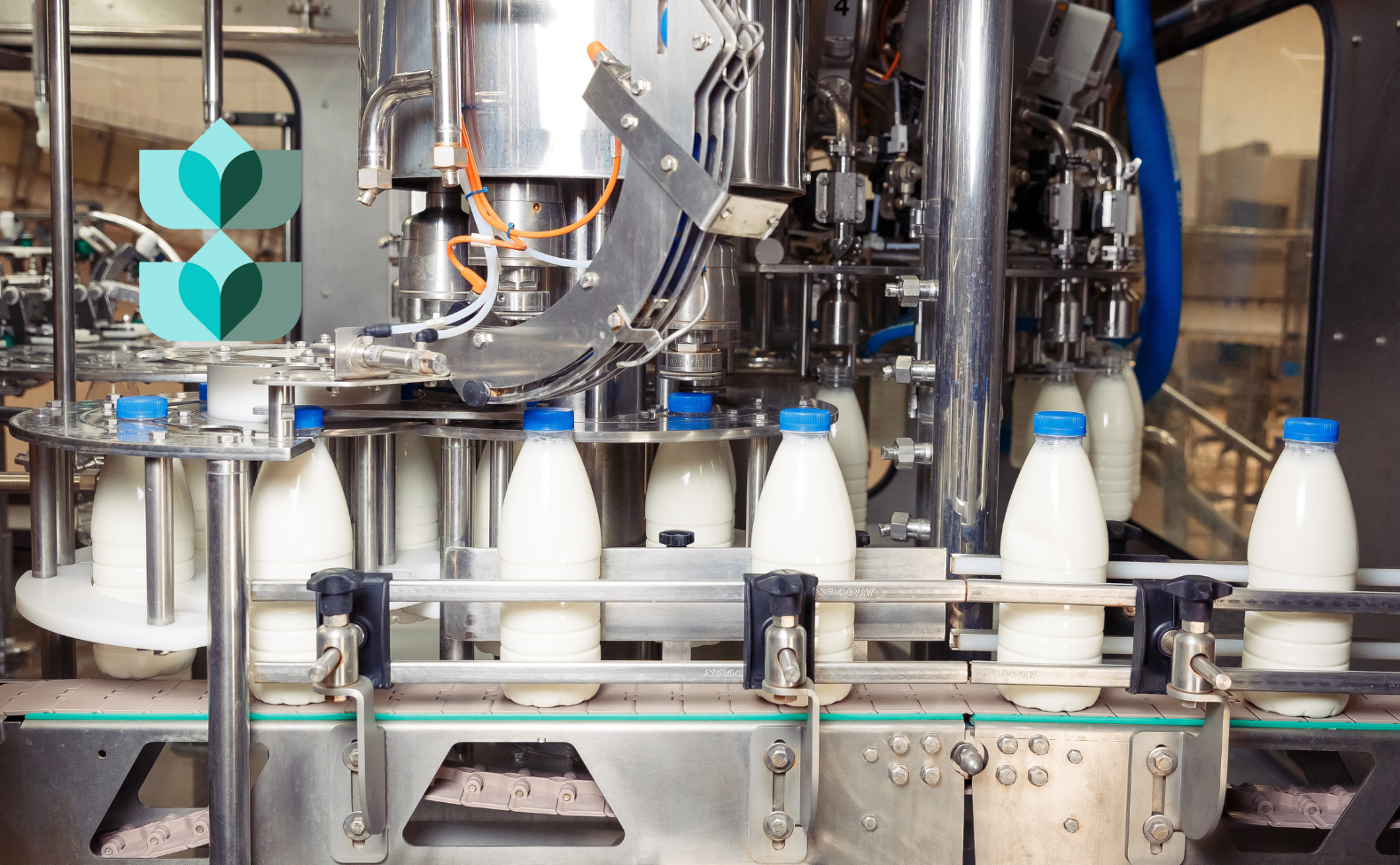Beverage companies operate in a fast-paced and competitive industry where efficiency and effectiveness are critical to success. Despite advancements in technology and processes, several operational challenges can slow down beverage companies, affecting their productivity, profitability, and customer satisfaction. This article discusses some of the key factors that can hinder operational performance in the beverage industry.
Supply Chain Complexities:
Beverage companies often face intricate and global supply chains involving multiple suppliers, manufacturers, distributors, and retailers. This complexity introduces several potential bottlenecks and challenges, such as:
Procurement Challenges:
Sourcing raw materials, ingredients, and packaging materials can be time-consuming. Beverage companies must establish reliable supplier networks, negotiate contracts, manage quality control, and ensure timely deliveries. Supply chain disruptions, such as natural disasters or transportation issues, can further impact procurement timelines.
Inventory Management:
Balancing inventory levels is crucial in the beverage industry to avoid stockouts or excess stock. Inaccurate demand forecasting, inadequate inventory visibility, and inefficient replenishment processes can lead to inventory imbalances and increased carrying costs.
Distribution Logistics:
Efficient distribution is vital for the timely and cost-effective delivery of beverages to customers. Challenges such as route optimization, transportation coordination, last-mile delivery, and managing multiple distribution channels can impact operational efficiency. Inadequate distribution infrastructure, delays in delivery schedules, and order tracking issues can slow down the entire supply chain.
.jpg?width=1580&height=976&name=Copy%20of%20Copy%20of%20Copy%20of%20Copy%20of%20Copy%20of%20Process%20Manufacturing%20ERP%20(1).jpg)
Production and Manufacturing Challenges:
Operational efficiency in beverage production is critical to meeting demand, maintaining product quality, and minimizing costs. Several factors can impede production processes:
Production Planning and Scheduling:
Fluctuating demand patterns, seasonality, and changing consumer preferences pose challenges for production planning and scheduling. Inaccurate forecasting, insufficient capacity planning, and inadequate coordination between production lines can lead to production inefficiencies, longer lead times, and potential bottlenecks.
Equipment Downtime and Maintenance:
Production equipment failure or downtime can significantly disrupt operations and lead to delays. Beverage companies must have robust maintenance programs in place to ensure preventive and predictive maintenance, minimize unplanned downtime, and optimize equipment utilization.
Product Changeovers:
In the beverage industry, frequent product changeovers are common due to the production of different flavors, packaging sizes, or seasonal variations. These changeovers require time and resources for cleaning, sterilization, and reconfiguring production lines. Inefficient changeover processes can result in increased downtime and reduced production efficiency.
.jpg?width=1580&height=976&name=Copy%20of%20Copy%20of%20Copy%20of%20Copy%20of%20Process%20Manufacturing%20ERP%20(14).jpg)
Quality Control and Regulatory Compliance:
Maintaining product quality and complying with stringent regulations are essential in the beverage industry. However, several factors can impede quality control processes:
Inconsistent Quality Standards:
Beverage companies often face challenges in maintaining consistent quality standards across different production batches or production locations. Inconsistent ingredient quality, variations in processing parameters, and lack of standardized procedures can lead to product variations and customer dissatisfaction.
Regulatory Compliance:
The beverage industry is subject to various regulations and quality standards, including food safety regulations, labeling requirements, and health and safety guidelines. Compliance with these regulations involves implementing robust quality management systems, conducting regular audits, and ensuring traceability throughout the supply chain. Failure to comply can result in penalties, recalls, or reputational damage.
Technological Limitations:
Outdated or inadequate technology infrastructure can hinder operational efficiency in beverage companies. Common technological challenges include:
Legacy Systems:
Beverage companies that rely on outdated or disparate systems face data integration, communication, and information-sharing difficulties across departments. Inefficient data handling and manual processes can lead to errors, delays, and a lack of real-time visibility into operations.
Limited Data Analytics Capabilities:
The beverage industry generates vast amounts of data related to production, sales, inventory, and customer behavior. However, the lack of advanced data analytics tools and capabilities can hinder companies from extracting meaningful insights, making informed decisions, and optimizing operations.
Communication and Collaboration:
Effective communication and collaboration between departments and across different levels of the organization are crucial for operational efficiency. Inadequate communication tools, fragmented information flow, and siloed processes can slow down decision-making, coordination, and problem-solving.
Operational challenges can significantly impact the performance of beverage companies. From supply chain complexities to production hurdles, quality control issues, and technological limitations, these challenges can result in delays, inefficiencies, increased costs, and customer dissatisfaction. Overcoming these challenges requires a strategic approach that involves implementing robust supply chain management systems, optimizing production processes, ensuring quality control measures, and embracing technology-driven solutions. By addressing these operational challenges, beverage companies can enhance their operational performance, stay competitive, and meet the ever-evolving demands of the industry.

Beverage Companies Turn to ERP Systems to Streamline Processes
Many beverage companies turn to advanced technological solutions to address the industry's various challenges, including Enterprise Resource Planning (ERP) systems. This article explores the role of ERP in beverage companies, highlighting its benefits, challenges, and key considerations in implementation.
Overview of ERP Systems:
An ERP system is a comprehensive software solution that integrates and manages various business processes and functions within an organization. It provides a centralized database and facilitates the flow of information across different departments, enabling companies to streamline operations, enhance productivity, and make informed decisions.
Benefits of ERP in Beverage Companies:
Streamlined Supply Chain Management:
Beverage companies rely on complex supply chains involving multiple suppliers, distributors, and retailers. ERP systems enable effective supply chain management by automating procurement, inventory management, demand forecasting, and logistics coordination processes. This streamlines the flow of goods and reduces bottlenecks, ensuring timely delivery and minimizing stockouts.
Improved Production Planning and Control:
Efficient production planning is crucial in the beverage industry to meet fluctuating demand and minimize wastage. ERP systems provide real-time visibility into production processes, enabling companies to optimize production schedules, manage inventory levels, and track raw material usage. This enhances operational efficiency, reduces costs, and helps maintain product quality.
Enhanced Quality Control:
Maintaining consistent product quality is of utmost importance in the beverage industry. ERP systems enable comprehensive quality control by automating quality checks, tracking and analyzing data throughout the production cycle, and facilitating compliance with regulatory standards. This ensures that the final product meets the desired quality standards and minimizes the risk of recalls or customer complaints.
Accurate Financial Management:
ERP systems integrate financial modules, enabling beverage companies to manage financial processes effectively. This includes functions such as accounts payable and receivable, general ledger, budgeting, and financial reporting. By automating financial processes, ERP systems improve accuracy, reduce manual errors, provide real-time financial visibility, and support better financial decision-making.
Enhanced Sales and Distribution Management:
Beverage companies often operate through multiple channels, including direct sales, distributors, and e-commerce platforms. ERP systems enable seamless sales and distribution operations management by integrating customer relationship management (CRM) functionalities. This allows companies to track sales orders, manage customer data, analyze sales performance, and improve customer service, ultimately driving sales growth.
Challenges in Implementing ERP in Beverage Companies:
Complex Implementation Process:
Implementing an ERP system is a significant undertaking that requires careful planning, resource allocation, and change management. Beverage companies often face challenges in aligning their existing processes with the ERP system's functionalities, migrating data from legacy systems, and training employees on the new system.
Data Integration and Standardization:
Beverage companies handle vast amounts of data across multiple departments and systems. Integrating and standardizing this data within an ERP system can be complex, as it involves mapping data fields, ensuring data accuracy, and resolving inconsistencies. Effective data management strategies and data governance frameworks are essential to overcome these challenges.
Adoption and User Acceptance:
ERP implementation requires buy-in from employees at all levels of the organization. Resistance to change and lack of user acceptance can hinder the successful adoption of ERP systems. Adequate training, change management initiatives, and clear communication are vital to address these challenges and ensure a smooth transition.
.jpg?width=1580&height=976&name=Copy%20of%20Copy%20of%20Copy%20of%20Copy%20of%20Copy%20of%20Copy%20of%20Process%20Manufacturing%20ERP%20(13).jpg)
Key Considerations in ERP Implementation:
Vendor Selection:
Choosing the right ERP vendor is crucial for the success of the implementation. Beverage companies should consider factors such as vendor reputation, industry expertise, system scalability, support services, and the vendor's ability to tailor the solution to meet specific business requirements.
Customization vs. Configuration:
Beverage companies must decide whether to customize the ERP system to fit their unique needs or adapt their processes to align with the system's standard functionalities. While customization offers greater flexibility, it can increase implementation complexity and ongoing maintenance costs.
Data Security and Compliance:
Data security is paramount, especially in the beverage industry, where proprietary formulations and customer data are at stake. Beverage companies should ensure that the ERP system complies with relevant data protection regulations, provides robust access controls, and implements data encryption and backup mechanisms.
Scalability and Future Growth:
Beverage companies must choose an ERP system to accommodate their future growth plans. The system should be scalable to handle increased transaction volumes, additional users, and potential expansion into new markets or product lines. Evaluating the ERP system's scalability and flexibility is critical to avoid future implementation challenges.
Enterprise Resource Planning (ERP) systems play a vital role in the beverage industry, enabling companies to overcome operational complexities, streamline processes, and achieve competitive advantages. By integrating various functions and providing real-time data visibility, ERP systems enhance supply chain management, improve production planning, ensure quality control, optimize financial management, and strengthen sales and distribution processes. However, successful ERP implementation requires careful planning and addressing data integration, user acceptance, and change management challenges. By considering key implementation considerations and choosing the right ERP vendor, beverage companies can harness the full potential of ERP systems and thrive in a dynamic business environment.

inecta ERP: An Ideal Solution for Beverage Companies
In the dynamic and competitive landscape of the beverage industry, choosing the right Enterprise Resource Planning (ERP) solution is crucial for streamlining operations, optimizing productivity, and gaining a competitive edge. inecta ERP, a comprehensive and industry-specific ERP system, offers numerous features and functionalities tailored to beverage companies' specific needs. If you're a beverage company looking to enhance your business's workflows and daily processes, schedule a demo to see how inecta's premier ERP software can help take you to the next level! Whether you're a beverage manufacturer, bottler, distributor, or wholesaler, inecta has the perfect ERP solution to suit your needs. inecta's industry-specific solutions can help alleviate the pain points your beverage business is experiencing, helping foster a more efficient, streamlined environment to your core processes.











Free Valuable Resource!
3 simple steps to find your Food ERP
Free Valuable Resource!
3 simple steps to find your Food ERP
*We will never sell your information. Keeping your data and privacy secure is our highest concern.